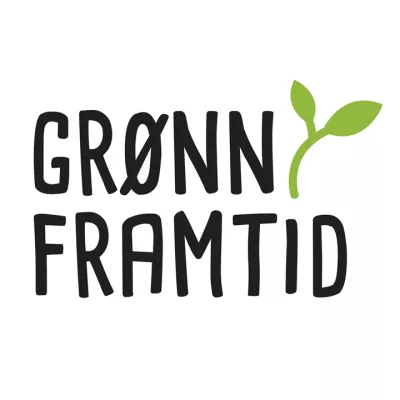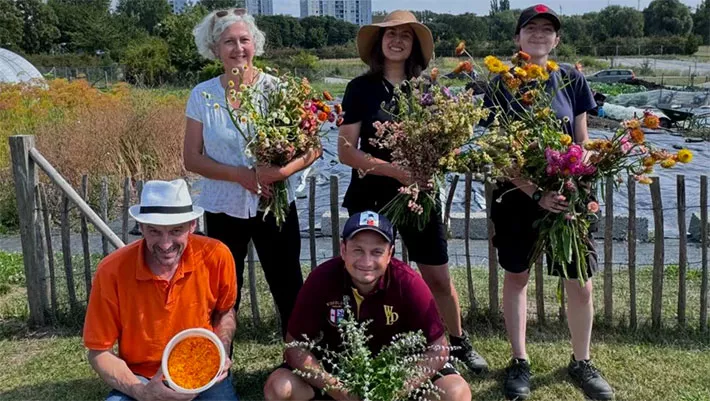General information
RDP Priority
- P6. Social inclusion and local development
RDP Focus Area
- 6B: Local development
RDP Measure
- M19: LEADER/CLLD
Beneficiary type
- Non-profit organisation
Summary
The LEADER-funded project Grön Framtid (Green Future) aimed at increasing interest and knowledge in small-scale food production to secure long-term food supply and reduce agriculture's climate impact in Sweden. The goal was to inspire people in an innovative way to take a more active interest in the food industry. A range of trainings, events, conferences and best practices were implemented to promote the indoor cultivation of food and stimulate future growers. The general public, particularly teachers and young people, were the main target audiences of the initiative.
The demonstration activities of the project focused on Botildenborg, a social farm with an on-site restaurant located in Rosengård near Malmö, Sweden. The Green Future project created practical solutions fostering ecological sustainability while engaging people of different backgrounds, ethnicities and ages.
Results
- A completed training programme, which included 40 lectures and workshops, was conducted for teaching staff, the general public and students.
- Through the markets, the project reached over 10 000 visitors who were able to see the project’s plantations thereby gaining an increased understanding.
- Nearly 2 000 people participated in the Harvest Festivals, increasing their awareness.
- The project strengthened Botildenborg as an innovative and sustainable destination, attracting different target groups for inspiration and education.

Promoter
Stiftelsen Botildenborg
Funding
Total budget: 1 000 000 (SEK)
EAFRD: 83 333 (SEK)
National/Regional: 250 000 (SEK) Region Skåne + 666 667 (SEK) Jordbruksverket
Ressourcen
Documents
Good Practice Report - Grön framtid (Green Future)
(PDF – 1.19 MB)
Links
Context
Botildenborg is a farm with a restaurant located in the region of Rosengård in Malmö, Sweden. The organisation grows over six tons of food annually and trains professional urban growers. The activities delivered by the farm aim to develop an increased interest and up-take of organic food production in Sweden in order to secure the long-term food supply in the country and reduce agriculture's climate impact. To raise the number of growers, and conscious consumers in Sweden, the farm needed to increase its reach to engage a larger target group in an innovative manner so that further interest and knowledge in small-scale agricultural cultivation and food production could be generated.
The idea for the Grön Framtid project application was based on developing best practice examples for several different cultivation methods, including hydroponics focusing on indoor cultivation. Instead of using soil, the technique of hydroponics uses a water-based nutrient solution or other growing media to grow plants.
In addition, further awareness-raising activities, training, inspiring events and conferences were needed to spread knowledge and interest among teachers, young people, and the general public.
The application's purpose was to inspire more future growers and develop an innovative visitor destination where topical courses and experiences around food and cultivation could become an attraction and contribute to acquiring practical knowledge about sustainability.
Objectives
The aim of the Green Future project 'Grön Framtid' was to create practical solutions to achieve ecological sustainability for the benefit of all. The objective was to raise awareness and increase growers' interest in becoming more active in the cultivation of food. To achieve this goal, the project sought to develop an innovative visitor destination where courses and experiences around food and farming would become a key attraction.
By utilising the project's specific location not far from Malmö, there was a good potential to engage people of different backgrounds, ethnicities and ages. The project was designed to motivate consumers and growers to become more informed, knowledgeable and entrepreneurial in their food choices, thereby increasing their sustainable consumption. As such, it was a keen interest of the project promoter to work from a sustainable perspective at all levels and in all contexts.
Activities
From the outset, the project's main activities involved developing more types of cultivation as a learning basis for future participants. This also involved setting up a hydroponics system and training the farm’s own staff at Botildenborg to strengthen their competence in the various cultivation techniques.
Particular emphasis was given to producing training courses (both physical and digital) for target groups such as teachers, the general public and pupils. The main themes of the training courses included growing microgreens, pallet collar cultivation, mushroom cultivation, hydroponics and refinement – apple juice production and fermentation.
In addition, a number of educational videos were created and published utilising Botildenborg’s established communication channels, such as social media (Instagram), a digital education platform and a website.
Further activities involved running markets (harvest festivals) with local food artisans, organising workshops for the public, and holding conferences for professionals in urban cultivation development, the food industry, authorities, and food crafters.
In parallel with project implementation, the project involved the ongoing tasks of project management, project control, reporting, progress monitoring, finance, administration and communication.
Main results
- A completed training programme was conducted for teaching staff, the general public and students with a total of 40 lectures and workshops focusing on growing microgreens, pallet collar cultivation, mushroom cultivation, hydroponics and refinement – apple juice production and fermentation.
- The project conferences were successful and well attended with a total of 70 participants creating important opportunities for key people within food production, fostering skills and knowledge exchange.
- Positive feedback was achieved whereby the educators who participated found the lectures educational, inspiring and useful.
- Through the markets, the project reached over 10 000 visitors who were able to see the project’s plantations and gained an increased understanding of small-scale food production.
- Nearly 2 000 people participated in the harvest festivals, increasing their awareness.
The project strengthened Botildenborg as an innovative and sustainable destination, attracting different target groups for inspiration and education. As a consequence, every week, all year round, mushrooms, microgreens and lettuce are now harvested from the farm.
Key lessons
- The project successfully engaged with preschool educators who could incorporate cultivation into their curriculum. However, working with educators in junior high and high schools was much more challenging because they were more restricted in what they could add to their existing curricula and had limited flexibility in planning external activities. Participating in the project required considerable commitment from their side. This was compounded by budget limitations. For example, a small purchase like seeds could be challenging for municipal operations, whereas private schools had it easier.
- Another challenge was finding the appropriate level of experience in teaching cultivation techniques. Prior knowledge varied greatly among those who participated in the project.
- For the general public, pallet collar cultivation training proved to be the most popular topic of the training programme.
